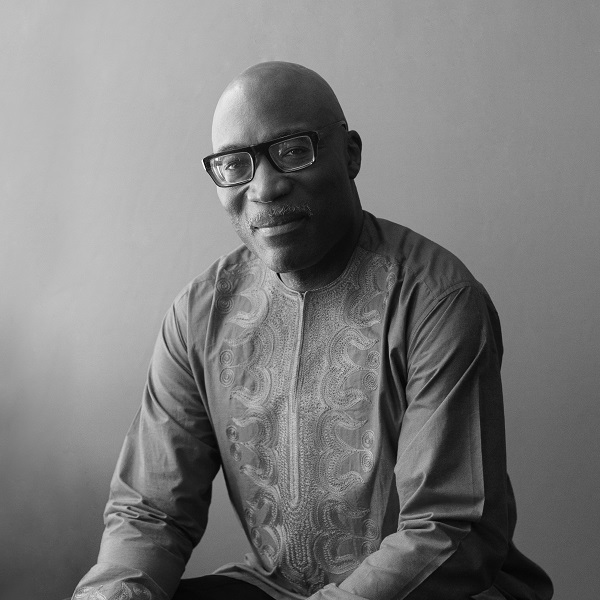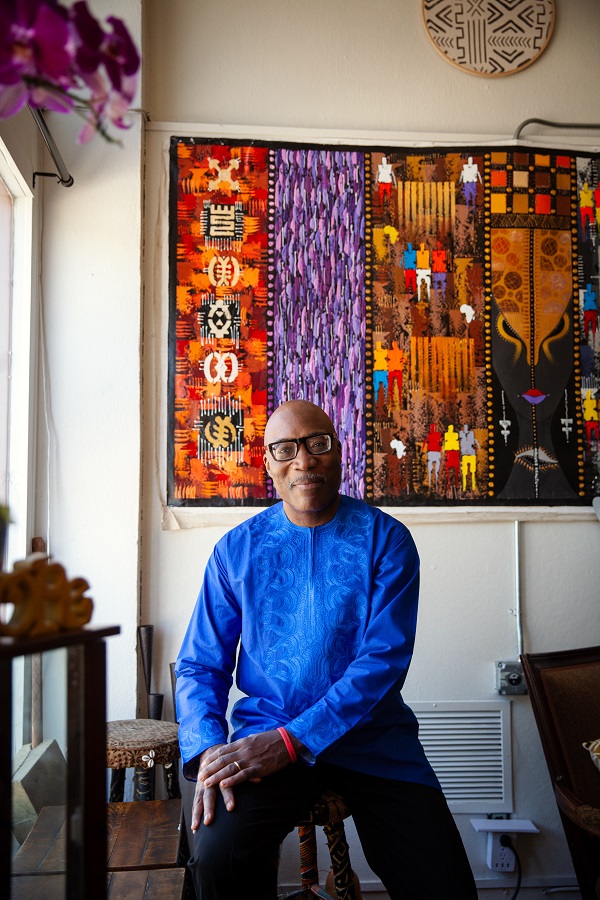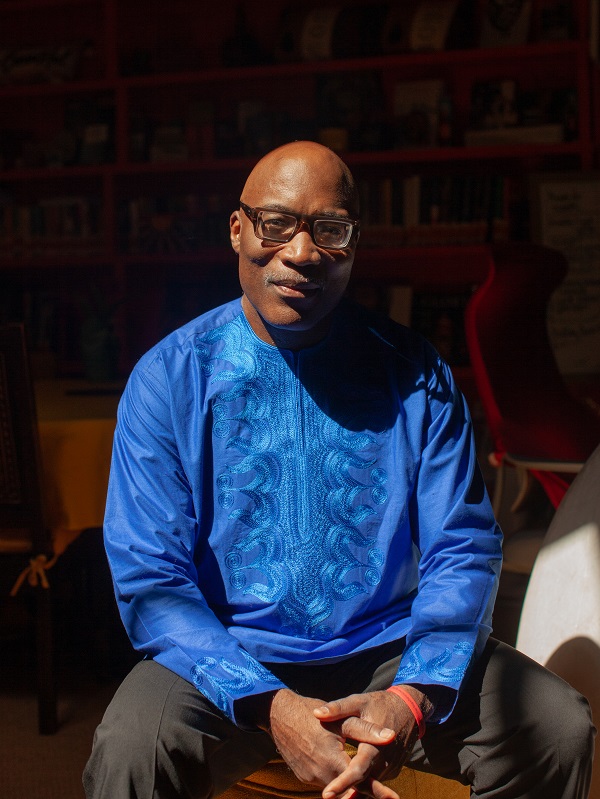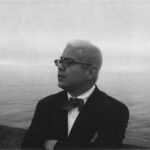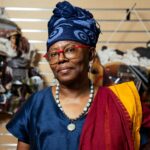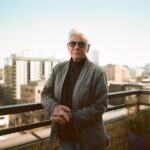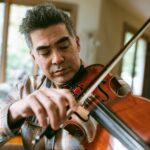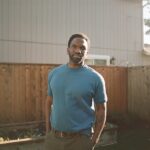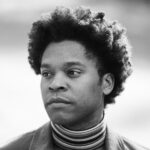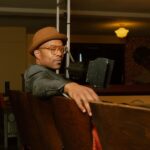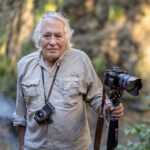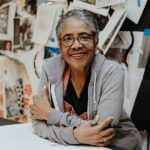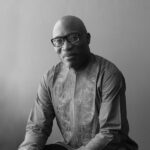PLAYING THE KEYS OF CHANGE
Written by Marcus Harrison Green; Photographed by So‑Min Kang
Darrell Grant has precisely zero doubts about the role artists play in lugging society (sometimes against its will) from periods of grim ignorance towards ethos of enlightenment. For the classically trained pianist, social justice and music are as inextricably integrated as the sharps and flats atop the instrument he’s spent more than a half century mastering.
Of course, by artist, he means everyone.
“Being an artist is not a professional description,” Darrell says.“All of us grew up being artists until we were told we couldn’t or shouldn’t do it. We put all of that sort of innocent creativity and adventurousness and openness away.”
Fortunately, Grant never buried his.
Born in Pittsburgh and raised in Denver, Grant was first introduced to a piano at seven years old. Prowess quickly followed, as did an understanding that music was more than mere entertainment. It was a vessel that healed, comforted, and assured—a worldview molded in adolescence by tagging along with his mother to nursing homes as she sang for elderly and disabled people. As his piano accompanied her licorice-sweet voice, Grant witnessed faces awash with joy that temporarily eclipsed whatever dreariness.
Sunday mornings in church, Grant backed up his mother’s vocals. People sang, and cried, and clapped for forgiveness, for reprieve, for hope from something higher and more sacred than themselves.
Grant began to conflate music with ministry, but he innately understood ministry as larger than four walls of a church.
“I didn’t want to be a minister. I didn’t want to play sacred music, per se. But that’s where the roots of thinking about what are you trying to do in the world with this gift that God has given you came from.”
Although he found inspiration in the works of venerated classical pianist Andre Watts, Grant gravitated toward a genre that resonated more with his Black heritage and passion for social justice: namely, that most uniquely American art form known as jazz. He loved the communal approach to the music, jamming in an ensemble, with all the ad hoc artistry and improvisation indicative of the art form. It also moved Grant closer to his identity, both personally as a Black man, and communally.
“I’m always trying to think of ways in which music can connect with larger, more universal themes,” says Grant.
Following teenage years spent playing professionally in Denver, and a freshly obtained Master’s degree in Jazz from the University of Miami at the age of twenty-four, Grant landed in New York City.
At a time when every artist dreamt of causing a stir there, Grant experienced the reality.
Grant’s playing style is the musical equivalent of a Denzel Washington performance: it’s bold but not ostentatious, profound but not preachy, spectacular but not flashy, and dignified but not sanctimonious. This undeniable talent became coveted in America’s cultural mecca. Grant toured with jazz titans like Chico Freeman, Betty Carter, and Tony Williams, and had his first solo album, Black Art, named as a top ten album of the year by the New York Times.
New York is still the highest peak for many artists who spend years trying to break through. What it isn’t, at least for most musicians who’ve experienced success, particularly Black ones, is a weigh station you voluntarily leave before heading west to settle down in Portland, Oregon.
But a career high that most would consider pinnacle ended up as a mere interlude for Grant, who accepted a position as Professor of Music at Portland State University.
Nearly 30 years later, his adopted city is still home.
Recently named the “whitest large city in America” by The Oregonian, Portland resides in a state that was America’s first and only to establish itself as a white’s only territory, replete with a constitution that, up until 2022, still referenced slavery.
It’s hard to picture Coltrane, Davis, or Ellington hitting the Oregon trail.
Continue Reading
Still, for Grant, Portland offered something that the Big Apple lacked: a sense of meaning, and purpose.
Grant took to learning about the history of Portland’s Black community from its cultural hubs, the segregation they faced due to housing discrimination, and the uniqueness of Black Portlanders.
“We don’t have a deep bench but the Black people here are amazing,” he says.
Although the Black musical population of Portland might have a limited roster, it’s quite the roster, counting musical heavyweights Esperanza Spalding and Keisha Chiddick as residents.
However, it’s everyday Black people who have been impacted by displacement and gentrification.
“When I came to Portland State I had to write a scholarly agenda which basically asked the question, What are you trying to accomplish? What questions are you dealing with?” says Grant. “And mine has always been the impact of music on community.”
The urgency of those questions intensified following the murder of George Floyd by former Minneapolis police officer Derek Chauvin.
As nationwide protests erupted against police brutality, Darrell, like many Black advocates at the time, saw this as a prime opportunity for his adopted city—which for a time captured the nation’s attention as a hotbed for social justice activism, protests, counter-protests by far right groups, and counter- counter- protests.
For Grant, the upheaval intensified the need to reflect on moving forward, while looking back, both as a nation and city.
It ultimately fueled him to envision and co-curate the Soul Restoration Project.
Part pop-up art activism, part cultural sanctuary, and all unrepentant expression of Black jubilee, the project began as a way to revitalize civic space across historically Black areas of the city through art, music, and dance events. They served as a clear expression of a strong, resolute, and evolving Black community.
Last year, the project transitioned from pop-ups to a physical location at Northeast Portland’s Albina Arts Center, which had been a historic epicenter for Black culture. A place for respite, refuge, and restoration.
“There’s a way in which these networks of intersection that we have with each other become really robust and resilient,” says Grant, who sees the space as an opportunity to seed networks of mutuality in a society growing ever more siloed.
Grant’s wary of those connections fraying in the future, particularly as an educator witnessing the silencing, censorship, and banning of culturally illuminating curriculum in parts of the country.
“What I think I need to do as an artist is to find a way to spark that piece of common humanity in everybody,” says Grant.
It’s why he views music as the perfect vehicle for homilies of inclusion, justice, and love.
“We have to have the dignity to insist and demand what we deserve. We have to have the armor to stand up to those who would continue to propagate hate. As an artist I have the permission to say, hey, this is an art project. And in a way that’s the biggest Trojan horse that we have. So people don’t feel threatened, but you still have a way to change things, and change people.”
Grant isn’t just theorizing. He composed an entire suite based on Ruby Bridges, the civil rights activist who, at six years old, was the youngest student to integrate a Southern elementary school.
As Grant’s piano plays, you can feel the resoluteness of a young girl as venom, bottles, and hatred are thrown at her.
Who knows if books telling her story will be banned; the emotion evoked from the arrangement of his composition is harder to suppress.
Grant hopes his work can demolish the illusion of race—and the racism that is that phantasm’s byproduct—and forge a pathway that leads to social reconciliation.
Here, Grant references Dr. Martin Luther King, Jr.: “It’s like he said, we have to find a way for everybody to win. It’s not just about representation, but it’s about our strength to love. I don’t see that there’s any long term solution outside of that.”
Arriving at that solution requires a life’s work. Thankfully, Grant has made it his.

